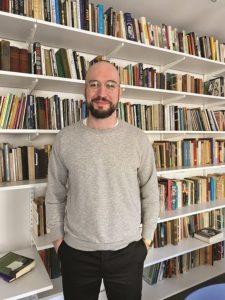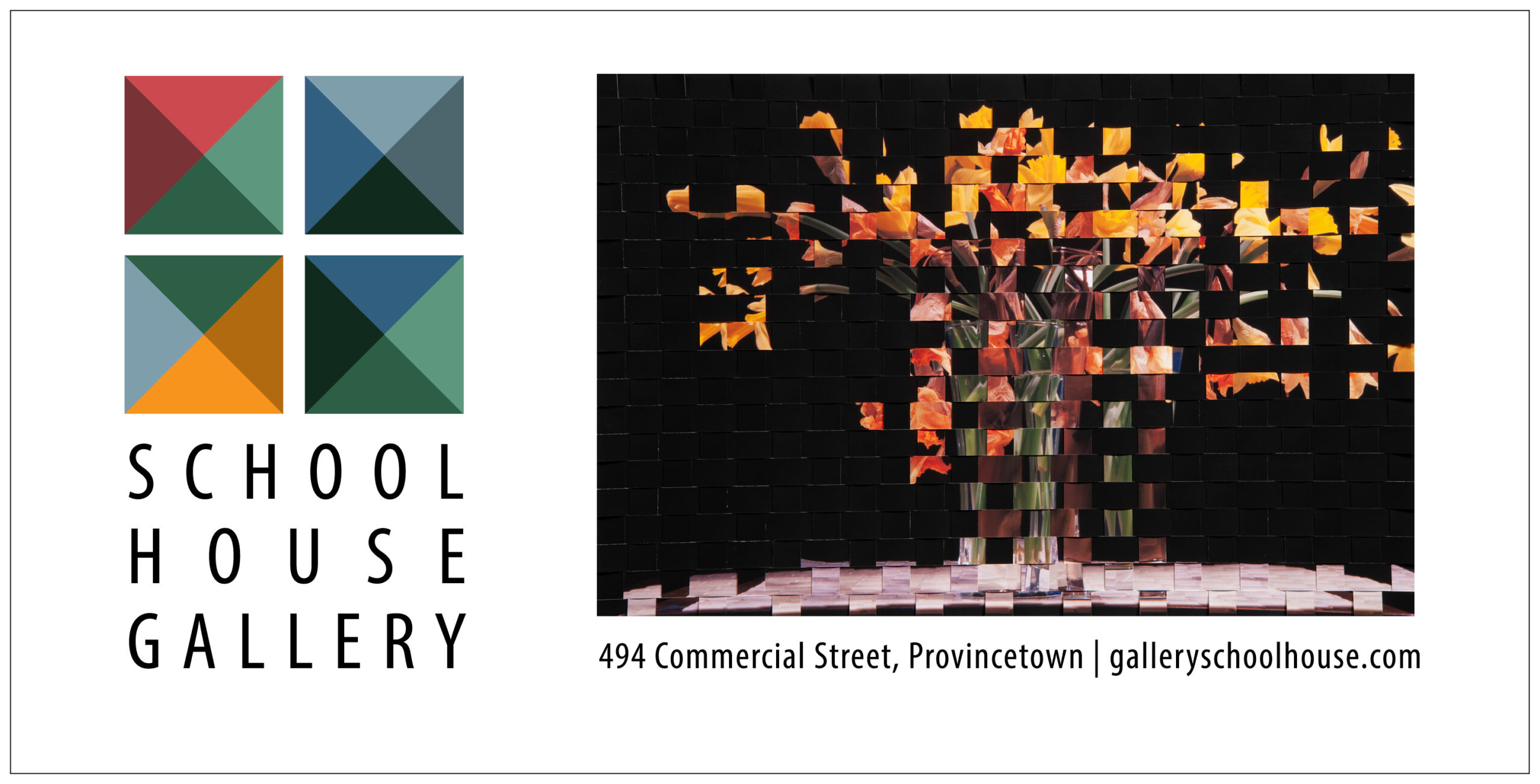Writer and current Fine Arts Work Center fellow Willie Fitzgerald calls himself a “stubborn fan” of the short story. “Dedicated short story writers and readers tend to be fewer in number,” he admits, “but they also tend to be fiercer in their devotion to the form.” Fitzgerald will be reading from his current work in progress at the first FAWC fellows showcase on Friday, Feb. 10.

Rendered in crisp, confident prose, Fitzgerald’s short stories home in on those fleeting moments in our everyday existence that change us, shape our paths, and show us who we truly are.
In “Study for the Prophet Joel,” the protagonist, Mallory, says her relationships always end at the two-year mark because “twenty-four months seemed to reveal everything there was to know about a person.” Phillip, whom Mallory is dating and whose restraint is becoming increasingly annoying, seems no different — that is, until he admits, in the middle of a frozen lake in New Hampshire, that he has cheated on her. “She watched him cry and she wanted to cry, too,” writes Fitzgerald. “She kissed him. The little bits of ice in his beard melted against her cheek. She was, she realized, in love with him. Oh no, she thought.”
Born outside Boston to parents who work in academic publishing, Fitzgerald and his family moved when he was a child to Cabin John, Md., a small town on the Potomac. “My parents gave me a lot of encouragement, a lot of access to art and making art,” he says.
He took creative writing classes as an undergraduate at the University of Wisconsin-Madison, then devoted much of his 20s to organizing literary events and working as creative director of the Authors, Publishers and Readers of Independent Literature Festival in Seattle. While he continued to write and publish short fiction, Fitzgerald says he considers that time in his life his “failure years.”
“And failure,” he adds, “is the most important and most useful teacher.”
After leaving event planning to focus on his writing, Fitzgerald was accepted into the highly selective M.F.A. program at the Michener Center, where he worked with writers Elizabeth McCracken, Bret Anthony Johnston, Edward P. Jones, Laura van den Berg, and Branden Jacobs-Jenkins. He won the inaugural Mari Sabusawa Editorial Fellowship at the literary journal American Short Fiction after graduating and was invited to stay on as a contributing editor.
The short story is often thought of as a steppingstone for novice writers, a way to hone their skills before taking on the more difficult task of writing a novel. Fitzgerald insists that the opposite is true.
“In the short story, the machinery involved is much subtler, and there’s much less room for error — the false beat, the flat bit of dialogue,” he says. “Put another way: if you build a shed and the door creaks or the window is off center, that’s still a shed. That’s writing a novel. If you repair a watch and you snap a tooth off one of the gears, the watch won’t work. That’s writing a short story.
“I don’t think repairing a watch is any more impressive than building a shed,” he adds. “I for one have never built a shed. I wouldn’t know where to start. The floor, presumably.”
Fitzgerald believes that readers often have false expectations of the short story form.
“People ask themselves why the short story they read in the New Yorker didn’t make them feel the same way as the novel they just finished,” he says. “To me, that feels like asking: why isn’t the painting I’m looking at making me feel the same way as the opera I just saw? The novel and the short story are made of the same material, and they have a lot in common, but they are essentially very different forms.” He believes that we’re currently living in a “pretty great time” for the short story: “There are a ton of contemporary writers out there making work that really excites me, like Jamel Brinkley, Cara Blue Adams, Yoon Choi, Ada Zhang, and Gothataone Moeng, who is also a FAWC fellow right now.”
Closely observed, naturalist short fiction like the kind Fitzgerald writes is much like a poignant anecdote your mom or a friend would tell you, he says. “I really love a story that feels so peculiar and moving,” he says, “that it gives you a deep sense of sympathy or compassion for a person you’ve never met, and makes you realize that everyone around you has a rich, complicated, and often difficult inner life.”
What unites the short story masters he admires most, he adds, naming Alice Munro, William Trevor, and Edward P. Jones, is “a preternatural understanding of what other people are like — their dreams, motivations, and fears.”
The linked collection of stories Fitzgerald is working on allows him to revisit characters like Mallory at different moments in their lives rather than following a single narrative arc in the way a novel does. “I believe that when we think about our own lives,” he says, “we think in a way that’s closer in scope to the short story.”
It’s perhaps explained best when Fitzgerald describes Mallory’s fascination with John Singer Sargent’s sketches: “She liked the studies more than the finished works because the studies still contained something unsettled and equivocal; they belonged to the realm of living, fallible thought.”



